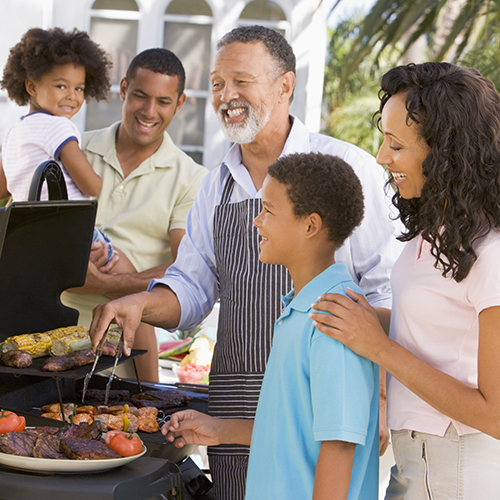Food poisoning, also called foodborne illness, is illness caused by ingesting contaminated food. The most common causes of food poisoning are infectious organisms such as bacteria, viruses, parasites, or their toxins. These infectious organisms, or their toxins can contaminate food at any point of processing or production. Contamination can also occur at home, if food is incorrectly handled or cooked.The CDC estimates that each year roughly 1 in 6 Americans (or 48 million people) get sick, 128,000 are hospitalized, and 3,000 die of foodborne diseases. America’s poison centers play an important role in helping to prevent food poisoning by promoting safe food preparation and storage strategies, as well as assisting callers who suspect they are at risk of developing food-borne illness or are exhibiting symptoms of food poisoning. Each year, poison centers manage almost 25,000 cases of suspected food poisoning, as well as assisting over 7,000 callers by providing information on food poisoning and food recalls. The most common symptoms of food poisoning include upset stomach, abdominal cramps, nausea and vomiting, diarrhea, fever, and dehydration. Symptoms may range from mild to severe, and may differ depending on the causative agent. Severe cases of food poisoning can cause long-term health problems or death.Poison centers are available to provide free, expert, and confidential information and treatment advice 24 hours a day, seven days a week, year-round, including holidays. If you have any questions about safe food preparation, or if you or someone you know suspects food poisoning, call the Poison Help line at 1-800-222-1222.Food Safety Tips for Preparing & Enjoying Meals PREPARE: Keep raw meats, eggs, and poultry separate from other foods in grocery bags, on the counter, and during preparation.COOK: Use a food thermometer to check if meat is fully cooked and reached the internal temperature required to kill harmful bacteria. Once cooked, keep hot food hot and cold food cold.STORE: Refrigerate leftovers within two hours to reduce the risk of bacterial growth. Consume or freeze within 3-4 days.Reminders for Mushroom ForagingPoisonous mushrooms often resemble mushrooms that are safe to eat.Cooking mushrooms will not remove or inactivate toxins.Do not ingest any wild mushrooms unless you are 100-percent sure that they are safe to eat.
Remember, if you have any questions about safe food preparation, or if you or someone you know suspects food poisoning, call the Poison Help line at 1-800-222-1222 to speak to an expert at your local poison center. You can also get help via the online tool, PoisonHelp.org.
| | |
/APC%20logo_2C%20with%20tagline.jpg)
 FOOD and MUSHROOM POISONING
FOOD and MUSHROOM POISONING